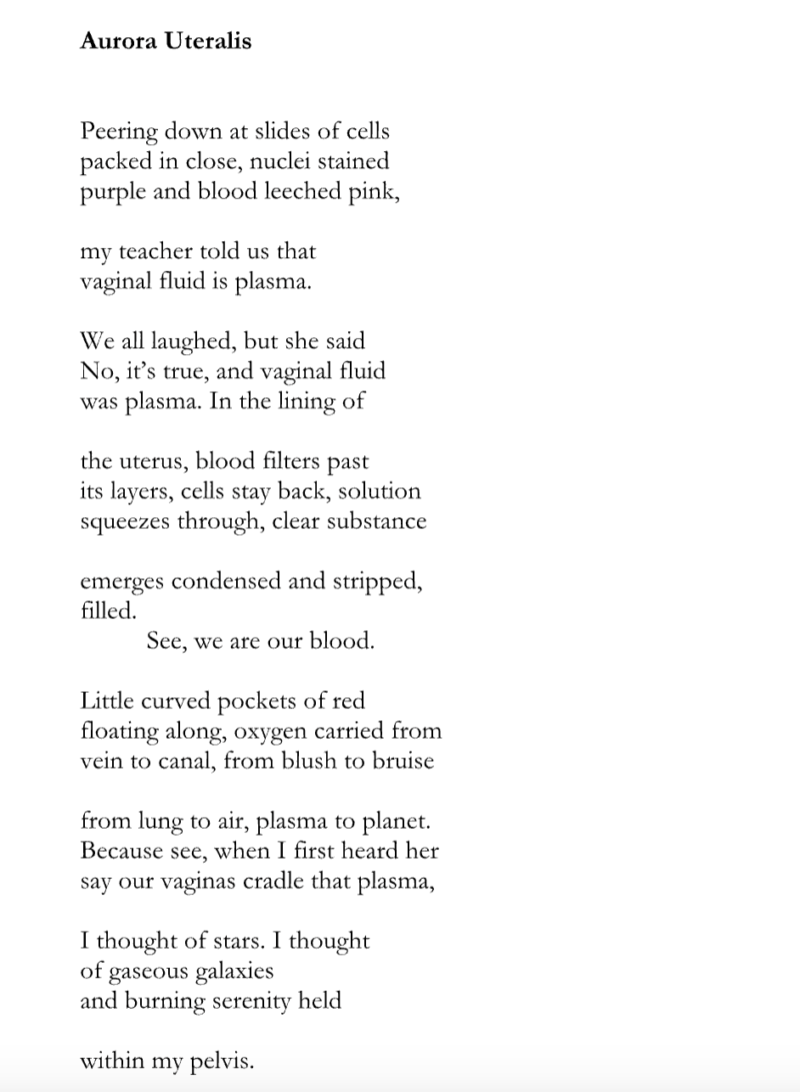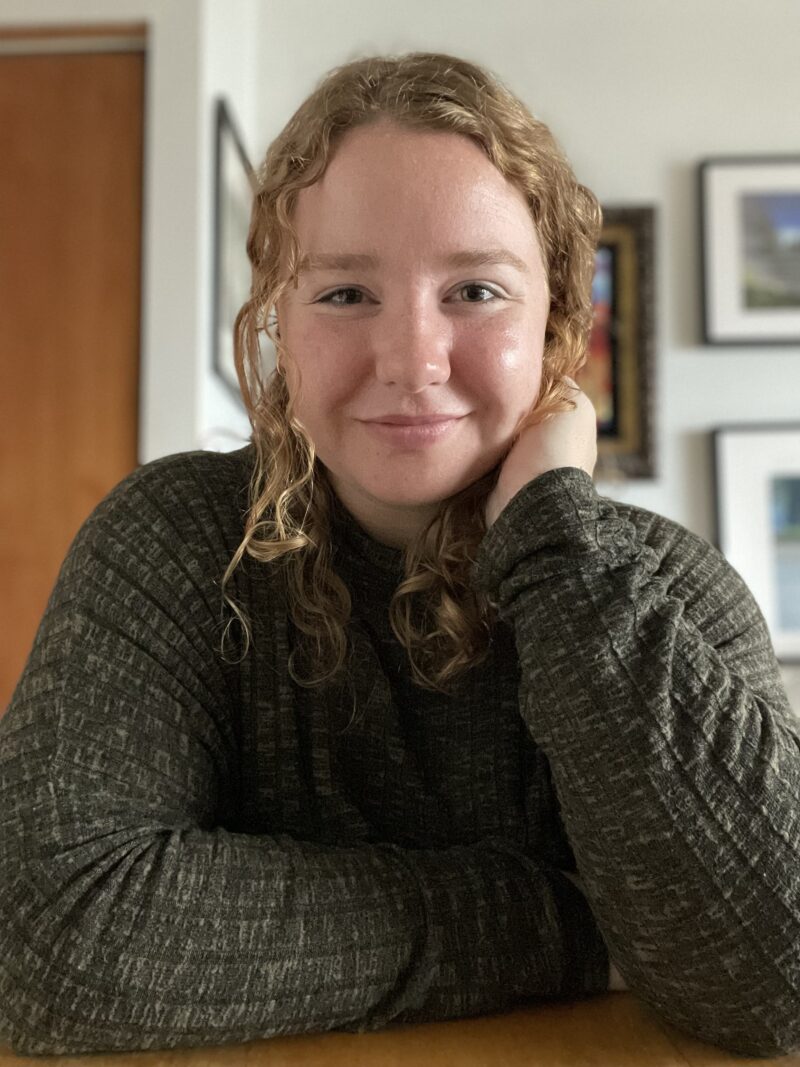When did you first encounter poetry? How did you discover that you wanted to write poems?
Poetry was the first form of creative expression that I can remember being truly irresistible. The idea of writing being something that could move down the page without being restricted to a paragraph, a page of text, but rather play with the line itself, has always felt the most natural to me. I’ve been writing poems since elementary school, which took the form of poems about the outdoors and nature; poems, and the images and lines in them, just felt like the way I parsed information and my experiences in the most authentic way.
Do you have a writing routine? A favorite time or place to write?
My routine fluctuates a lot; I don’t have a set time every day to sit down and write. Rather, I keep my notes ready on me to be able to pull out and jot something down, and give myself equal grace for a short phrase versus a full rough draft. Sometimes inspiration hits at 4:00 am and I’ll type something out quick on my phone, and sometimes it hits on my commute to or from work; either way, I embrace my process as fluid and try to hold myself to consistency to show up for myself and my poems.
Where do your poems most often “come from”—an image, a sound, a phrase, an idea?
My poems will root themselves in an idea at the start; I am drawn to the way words fit together in a short phrase to encapsulate so much. Sometimes it will be a scientific fact that I want to play with; other times it will be a concept grown out of connecting memories or experiences.
Which writers (living or dead) have influenced you the most?
Whenever I get asked this question it feels simultaneously so easy and so hard to respond. I am drawn to poets that are able to write through a balance of lyric and narrative as well as a balance of personal experience and connection to the outside world, whether that is with an interdisciplinary lens, incorporating found knowledge, or evoking the relationship between our environments and ourselves. Some major influencers and poets I admire, which by no means is an exhaustive list, include Vivee Francis, Kimiko Hahn, Ross Gay, Rajiv Mohabir, Leila Chatti, Aimee Nezhukumatathil, Kaveh Akbar, Layli Long Soldier, Alan Shapiro, and Brenda Shaughnessy.
What excites you most about your new collection?
Aurora Uteralis blurs the lines between the plant and the body as poems deliberate on sexuality, autonomy, and the different facets of emotional intimacy we carry. The poems simultaneously live within the world of the body, not shying away from imagery of stretch marks and vaginal fluid, while bridging this inner world to one of shriveled sage plants, clamshells, and cockroaches. I am excited about the possibility of unexpected pairings of body and nature that ask us to look more closely at ourselves through the growth, decay, and dirt of life around us. I explore how the body is viewed, loved, and grieved through environment, and work towards blurring the line between a scientific and artistic perspective through a poetic lens.


Katie Mihalek is a poet, editor, and educator living in Somerville, MA. She is the author of Aurora Uteralis, a chapbook from Finishing Line Press. She holds an M.S. in Medical Sciences from Boston University and an MFA in Creative Writing at Emerson College, where she served as the Editor-in-Chief for Redivider. She has received support from the Kenyon Review Writers Workshop and the Southampton Writers Conference, and is the Poetry Editor of Fork Apple Press. Her poems can be found in Frontier, TIMBER, Sheila-Na-Gig, and others.

